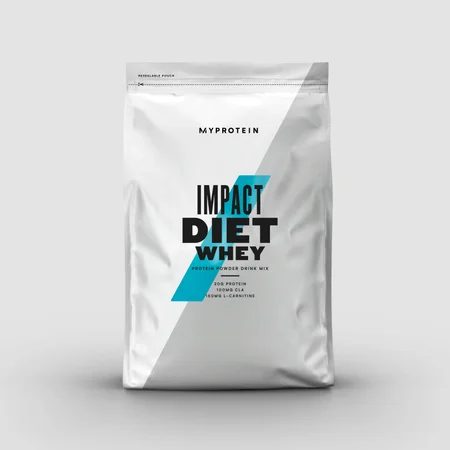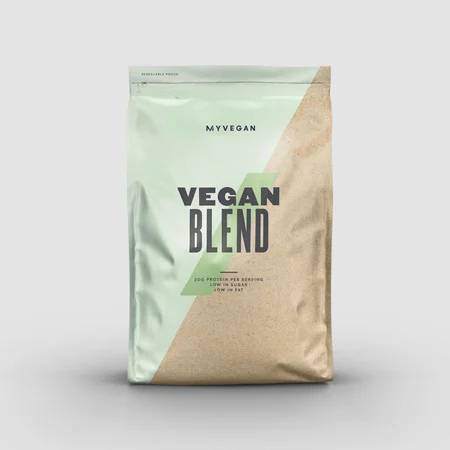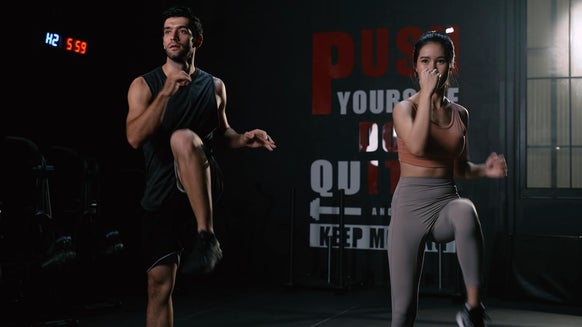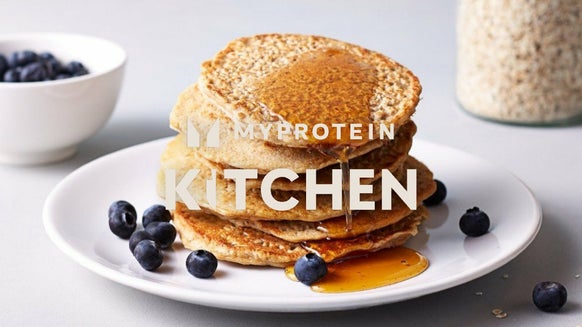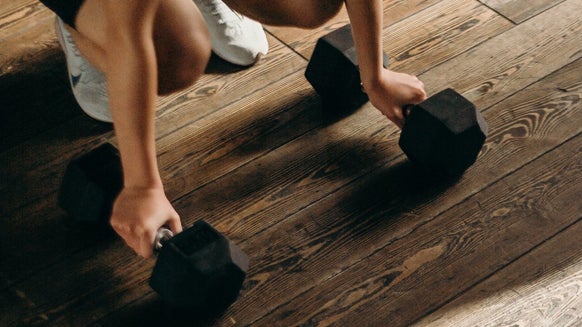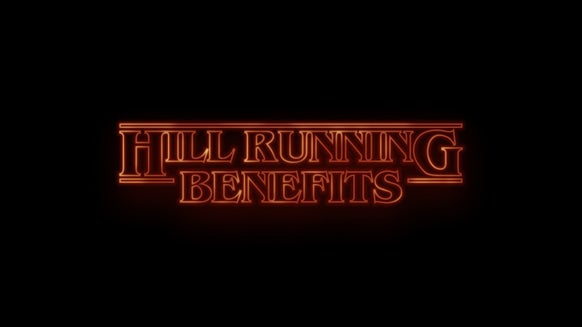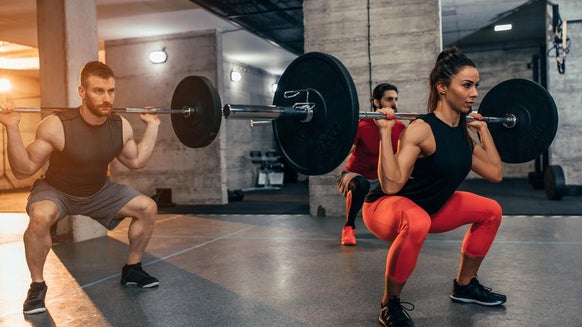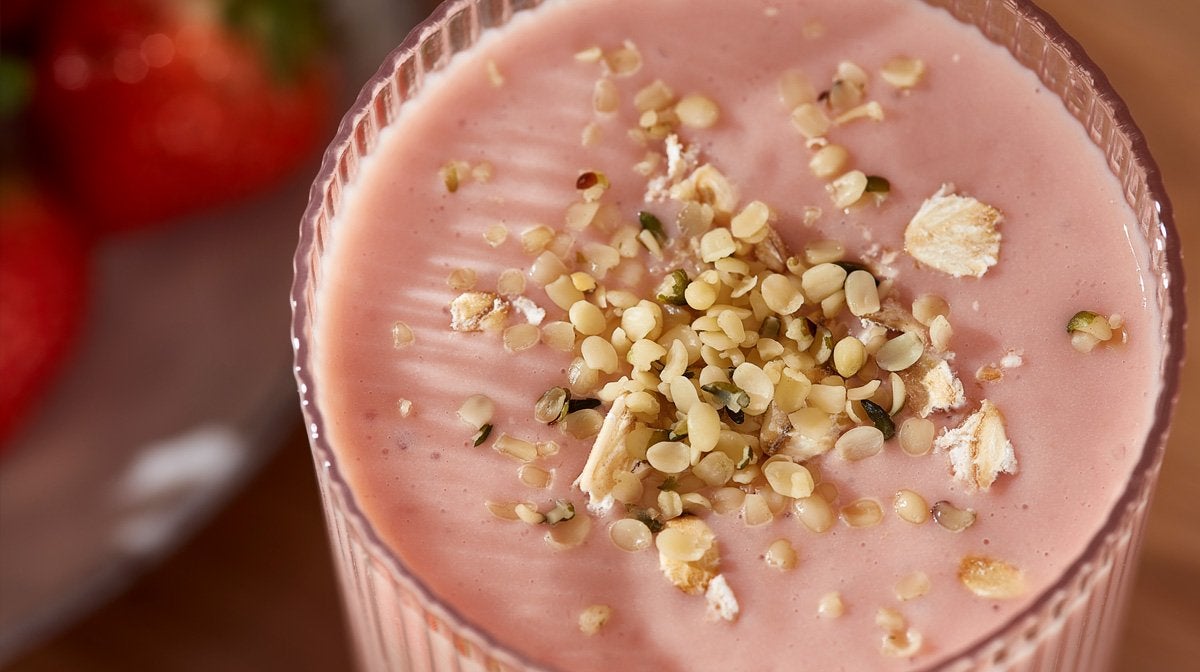
Protein shakes are great for many reasons, and they’re used by everyone from elite athletes to your average gym goer. Protein shakes can also be great for weight loss.
A common misconception is that drinking protein shakes will make you bulk up or gain weight, as they’re often used by bodybuilders. In fact, it's actually the opposite. In this article we’ll take you through how protein works to help with weight loss, as well as ideas for how to make it work for you and your diet.
- What are protein shakes?
- How to achieve a calorie deficit
- Do protein shakes help weight loss?
- How does grhelin affect hunger?
- Is protein helpful for dieting?
- Can protein shakes be used as a meal replacement?
- Can protein shakes change body composition?
- Best protein shakes for weight loss
- How much protein do you need for weight loss?
- When should you drink a protein shake for weight loss?
- Protein shake recipes
- Do protein shakes work for women's weight loss?
What are protein shakes?
Protein shakes are typically made from protein powder and water. However, you can combine protein powder with whatever you like — milk is popular to customize your own shake and the combinations are endless. Protein powder is a convenient protein source that can be used to help meet your workout goals, or to ensure that you consume enough protein each day.

Whey Protein Timing | The Best Time To Take Protein Shakes
We reckon any time is a good time, but here's what the experts say....
Alternatively, you can purchase high-protein, pre-packaged shakes in the supermarket or health food shops. While you might think of protein shakes as just for post-workout, they can be used throughout the day, in a variety of ways, to supplement your diet.
The most popular protein powders include:
- Whey Protein: available as whey concentrate, whey isolate, and hydrolyzed whey. This form of protein contains all nine essential amino acids.
- Casein: This protein is slowly absorbed by the body and contains all nine essential amino acids.
- Soy protein: A plant-based protein containing all nine essential amino acids.
- Hemp Protein: A plant-based protein, high in omega-3 and omega-6 fatty acids.
- Rice Protein: A plant-based protein, lower in essential amino acids.
- Pea Protein: A plant-based protein containing all nine essential amino acids.
Summary: Protein shakes are drinks made from protein powder or another liquid. They’re convenient for adding protein to your diet when access to food is limited.

Vegan Protein Powder | Best Vegan Alternatives To Whey Protein
Nutritionist unpacks your options....
How to achieve a calorie deficit
When it comes to losing weight, it's as simple as calories in vs. calories out. When you expend more calories than you consume, you will be in a negative energy balance or a calorie deficit. This means your body has to use stored energy (fats and carbohydrates) to function, which will result in weight loss.
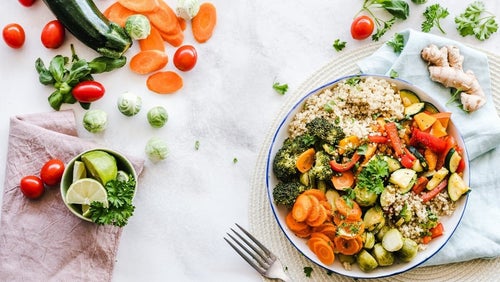
Calorie Deficit Explained: Simple Steps to Sustainable Weight Loss
The science of weight loss explained in simple terms....
While there may be a number of factors that will dictate whether you are in a negative energy balance, in essence, it's almost as simple as needing to do more and eat less.
In order to maintain your physique, strength, and resting metabolism, it’s important to make sure that it’s body fat lost during a cut and not muscle mass. To do this, it is important to get your protein right. And that’s where we come in.

Macro Calculator | How to Calculate Your Macros for Flexible Dieting and IIFYM
Use our calculator to work out your macros....
Do protein shakes help weight loss?
Research has shown that high-protein diets can be an effective approach to weight loss.1However, too much protein from animal sources can contribute to extra saturated fat and cholesterol, which isn’t good for your heart. Protein powders provide a low-fat, low-cholesterol alternative to eating additional, larger portions of animal-based protein products.
When trying to lose weight, the bottom line is that you need to consume fewer calories than your body burns throughout the day. Everyone’s calorie needs vary depending on body size, body composition, health conditions, activity levels, and goals. Protein shakes can help with weight loss in several different ways, as they can be used:
- As a dieting tool
- To help change body composition
Generally, protein shakes can aid weight loss by decreasing hunger and appetite — as protein takes the body longer to break down and digest than fat and carbohydrates — and maintaining lean muscle.
Summary: Protein shakes may aid weight loss as they increase the amount of protein in your diet, which has been shown as an effective approach to weight loss.
How does ghrelin affect hunger?
When it comes to feeling hungry, your hormones are what signal the brain to think that you need to eat. Ghrelin is the hormone in your body that controls your appetite — it’s often called 'the hunger hormone’. Higher levels of ghrelin make us feel hungry, while lower levels keep us feeling satisfied.2
When you consume an adequate amount of protein (like 20 grams in a protein shake), the body responds by lowering the level of ghrelin in the body.2
When ghrelin levels are low, the brain stops telling us to feel hungry and seek out food. Research has shown more protein in our diet leads to lower levels of ghrelin.3 The lower the level of ghrelin, the more satisfied you’ll feel.
Summary: Protein lowers ghrelin levels, which makes our brain reduce hunger signals and feelings in the body.
Is protein helpful for dieting?
Protein, carbs, and fat are all digested slightly differently. Protein is one of the nutrients that slows down the digestive process. Food stays in the stomach for longer, so your brain thinks you’re full and satisfied.2
This slow digestion rate also means that protein doesn’t cause significant changes in blood sugar levels like high-carbohydrate foods do.
A low-sugar and low-fat protein shake can also be a great low-calorie snack alternative. It can keep you feeling more satisfied than a high-carb snack, like a handful of pretzels or a cookie. Additionally, there’s no evidence of any potential side effects of protein supplements in healthy individuals.4
High-protein food sources can also be more satisfying in terms of volume. They tend to be lower in calories per gram than foods high in fat and carbs, so you can consume larger quantities for fewer calories. This ‘volumetric’ approach to eating is more satisfying when it feels like your portions aren’t limited, and this can help keep you feeling fuller for longer.
Summary: When foods high in protein take a longer time to digest and prevent blood sugar spikes, we feel fuller for longer periods of time and are less likely to overeat.
Can protein shakes be used as a meal replacement?
Protein shakes aren’t meal replacements by themselves. They are, however, a great way to pad out your day with some extra protein. However, a protein shake packed with other goodness makes a great breakfast.
It’s important to make sure your shake contains other macro and micronutrients such as carbohydrates, fat, vitamins, and minerals. Then you can be confident you’re consuming something as nourishing as a full meal. Adding a scoop of peanut butter, swapping water for milk, or adding oats and fruit to your shake is a great way to pack nutrients in.
Summary: Protein shakes can be a great component of a meal replacement if you also add a source of carbohydrates and healthy fats.
Can protein shakes change body composition?
Shakes can also be used to increase your protein intake when trying to lose fat and gain lean mass. When you exercise and burn calories, but are also consuming less from your diet, the body starts to break down stored fat – as long as it has enough protein.4
It may sound confusing that gaining mass can lead to weight loss, but the more muscle (lean mass) your body has, the more energy (calories) it burns. Plus, when you’re burning calories during intense workouts, protein shakes not only help your muscles to repair, but also prevent their breakdown. This helps your body to burn fat instead.3
Using protein powder in addition to exercise that builds muscle can help lead to these long-term body composition changes.5
Summary: High-protein diets promote muscle growth by providing the protein they need to build and repair after a workout. Higher levels of muscle, or lean mass, increase metabolism for greater calorie burn even at rest.

How To Calculate BMR & TDEE (& Why It's Important)
Adjust your targets to work for your goals....
Best Protein Shakes for Weight Loss
While there are so many options for protein shakes, the best for weight loss are the ones that help you meet your protein goals without going overboard on calories. Here are some great options to consider as options for the best protein shakes for weight loss.
Impact Whey
The OG. A great all-round protein supplement, Impact Whey comes in delicious flavours, is low in sugar, and has 21g of protein per serving. It’s incredibly versatile and can be used on its own or as part of a meal replacement.
Whey Isolate
A great option for weight loss is Whey Isolate because it’s a more concentrated protein source (with less carbs and fat), containing up to 90% protein. This way you know you’re getting mostly protein and little else for the calories you’re consuming.
Hydrolyzed protein
Hydrolyzed protein is broken down to help your body absorb it more easily. Check the labels to see if it is a lower calorie option than other forms of protein powders, but many offer very refined protein that cuts out other components.
Diet protein powders
Diet protein powders are not only void of extra calories from sugars and fats, but can also contain other compounds to boost your energy (such as caffeine or green tea extract) and support your metabolism.
Vegan protein powder
Options of vegan protein vary in their calorie content but can also offer low-carb and low-calorie options to support weight loss and help you meet your goals.
How much protein do you need for weight loss?
If you’re looking to lose weight and preserve muscle, then you’ll definitely want to eat a diet that’s higher in protein. When you’re in a calorie deficit, your body can break down your muscles for energy when it runs out of other sources. To prevent this, consuming 1.4 – 2.0g/kg body weight has been shown to be sufficient in those who regularly exercise.6
Summary: General guidance for maintaining muscle mass while in a calorie deficit is to consume 1.4–-2.0g of protein per kg of body weight.
When should you drink a protein shake for weight loss?
The timing of your protein shake depends on where it fits with your goals and your daily meal plan. If the protein shake is designed to replace a meal, then simply have it at that time.
If you’re consuming protein to help you gain muscle, it’s best to have it after your workout, and for up to 24 hours after.5 If you’re using low-calorie shakes to feel full and satisfied, it might be most useful to have them between meals. You can tailor it depending on when you usually feel the hungriest.
Shakes also have a high liquid content, typically containing at least 8–12 ounces of liquid. Liquids reach your stomach faster than food, so this can help fill your stomach and help you to feel satisfied quickly.

Protein Shake With Milk Or Water | What's The Difference?
Make your shake work for you, not against you....
What are some protein shake recipes?
If you’re replacing a meal with a shake, try including a good balance of macro- and micronutrients by adding some healthy fats and carbohydrates too.
Here are a few ideas to get you started — two bulkier smoothies, a post-workout shake, and a diet shake, designed to be used as a snack.
- Green Protein Smoothie: Add spinach, berries, and avocado to a blender cup with your favourite protein powder. Mix with water, milk (for more protein), or non-dairy milk and blend for a refreshing smoothie.
- Banana Nut Smoothie: Add frozen banana, a spoonful of peanut or almond butter, and your favourite protein powder flavour (we love chocolate for this recipe). Then add your choice of milk and blend until smooth. For an extra boost of protein, add some Greek yogurt.
- Post-workout Shake: If you've had a very intense workout and need to refuel, mix the protein powder with water and consume within 30 minutes of your training. Depending on how hard you worked, you might want to choose a protein powder with some carbohydrates to help rebuild your muscle’s energy stores while they repair and grow.
- Diet Shake: Mix a low-carb, low-calorie protein powder with a low-calorie liquid, keeping the fat and carbohydrate counts low. This is a filling snack to get you through those afternoon slumps! As simple as adding a scoop of protein powder to water and mixing it in a blender bottle, or adding some flavoured protein powder to leftover coffee and blending with ice for a satisfying frozen coffee treat.
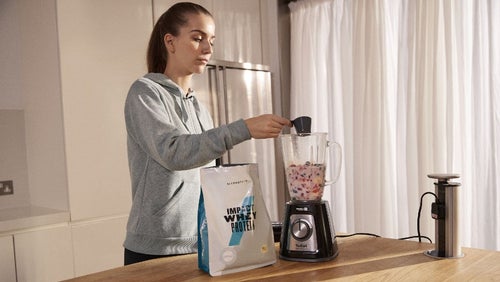
Dieting Supplements | Should I Drink Protein Shakes Whilst Cutting?
This could be the secret to fat loss.....
What are good protein sources?
| Food (100g) | Calories | Protein | Carbohydrate | Fat |
| Chicken breast | 153 | 33g | 0g | 3g |
| Salmon | 159 | 21g | 0g | 8g |
| Tuna | 88 | 19g | 0g | 1g |
| Tofu | 82 | 8g | 2g | 5g |
| Quinoa | 368 | 14g | 64g | 6g |
Do protein shakes work for women’s weight loss?
While many research studies focus on protein shake supplements for men, the benefits also apply to women. Protein will similarly affect ghrelin levels and slow digestion in women, as studies on male subjects have shown. For women with a lower body mass than the average man, who want to lose weight and remain in a calorie deficit, a low-calorie option may be best. Remember that your protein powder should always be part of an overall healthy diet pattern.
Take home message
Protein shakes can help with weight loss in a variety of ways. From helping to replace high-calorie meals, to keeping you full between meals and preventing overeating. Plus, they can help to build muscle and burn fat from your workouts.4
Protein also lowers the levels of the hunger hormone ghrelin, telling the brain that you’re less hungry.
Protein powders are a great way to make the most of a healthy diet and exercise habits, and they could also help with the weight loss results you may be hoping for. While some pre-made protein shakes are available, make sure to read the labels and check what other ingredients are included. We think it’s best you make them yourself at home so you know exactly what’s going into them.
FIND MORE ON SUPPS HERE:
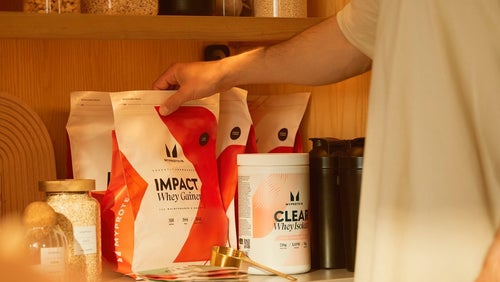
The 8 Best Supplements For Muscle Gain
Is growing muscle on your agenda? Then you've probably considered supplements – ...

8 Benefits Of Fish Oil
It has even been shown to improve mental well-being....
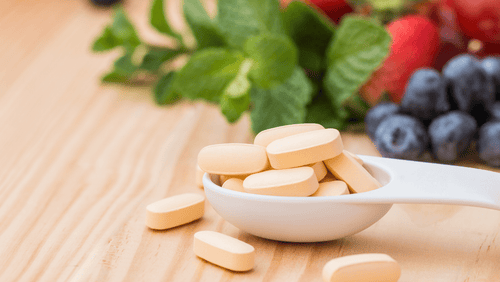
Do Multivitamins Actually Work?
How effective is this vitamin all-rounder?...

Claire is a Registered Dietitian through the Academy of Nutrition and Dietetics and a board-certified Health and Wellness Coach through the International Consortium for Health and Wellness Coaching. She has a Bachelor of Science in Biology and a Master’s degree in Clinical Dietetics and Nutrition from the University of Pittsburgh.
Talking and writing about food and fitness is at the heart of Claire’s ethos as she loves to use her experience to help others meet their health and wellness goals.
Claire is also a certified indoor cycling instructor and loves the mental and physical boost she gets from regular runs and yoga classes. When she’s not keeping fit herself, she’s cheering on her hometown’s sports teams in Pittsburgh, or cooking for her family in the kitchen.
Find out more about Claire’s experience here.
- Dong, J. Y., Zhang, Z. L., Wang, P. Y., & Qin, L. Q. (2013). Effects of high-protein diets on body weight, glycaemic control, blood lipids and blood pressure in type 2 diabetes: meta-analysis of randomised controlled trials. British Journal of Nutrition, 110(5), 781-789.
- Giezenaar, C., van der Burgh, Y., Lange, K., Hatzinikolas, S., Hausken, T., Jones, K., … & Soenen, S. (2018). Effects of substitution, and adding of carbohydrate and fat to whey-protein on energy intake, appetite, gastric emptying, glucose, insulin, ghrelin, cck and glp-1 in healthy older men—A randomized controlled trial. Nutrients, 10(2), 113.
- Giezenaar, C., Hutchison, A., Luscombe-Marsh, N., Chapman, I., Horowitz, M., & Soenen, S. (2018). Effect of age on blood glucose and plasma insulin, glucagon, ghrelin, CCK, GIP, and GLP-1 responses to whey protein ingestion. Nutrients, 10(1), 2.
- Leidy, H. J., Clifton, P. M., Astrup, A., Wycherley, T. P., Westerterp-Plantenga, M. S., Luscombe-Marsh, N. D., … & Mattes, R. D. (2015). The role of protein in weight loss and maintenance. The American journal of clinical nutrition, 101(6), 1320S-1329S.
- Samal, J. R. K., & Samal, I. R. (2018). Protein Supplements: Pros and Cons. Journal of dietary supplements, 15(3), 365-371.
- Jäger, R., Kerksick, C. M., Campbell, B. I., Cribb, P. J., Wells, S. D., Skwiat, T. M., … & Smith-Ryan, A. E. (2017). International society of sports nutrition position stand: protein and exercise. Journal of the International Society of Sports Nutrition, 14(1), 20.

